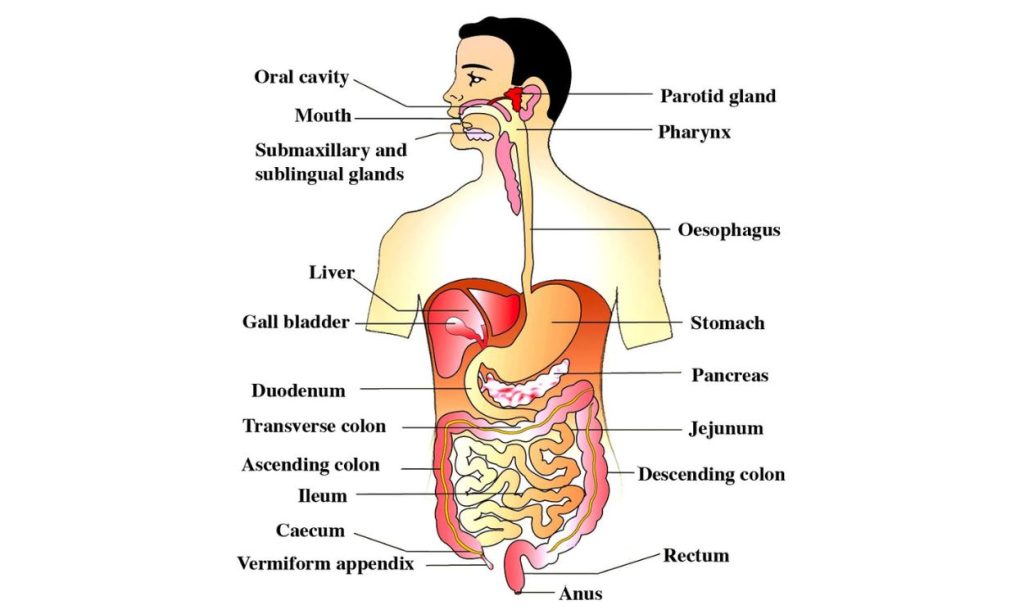Have you ever wondered if it’s bad to play the trumpet after eating? As a trumpet player, it’s essential to understand how various factors may affect your performance. In this article, we will explore the relationship between eating and playing the trumpet, examining the potential consequences and providing helpful tips for optimal performance.
The Science Behind Playing Trumpet
Basic mechanics of trumpet playing
- Breathing techniques: Trumpet playing requires efficient and controlled breathing, which is essential for maintaining a steady airflow through the instrument. Players must engage their diaphragm, a muscle located below the lungs, to inhale deeply and expand their lungs fully. When exhaling, trumpet players use a combination of diaphragmatic support and controlled release of air through their lips, producing the necessary vibration for sound.
- Embouchure and lip positioning: A player’s embouchure refers to the way they position and use their lips, teeth, and facial muscles while playing the trumpet. The embouchure is crucial for producing a clear and consistent tone. To achieve a proper embouchure, players must form a firm seal around the mouthpiece while keeping their lips relaxed and flexible. This allows for the lips to vibrate freely, creating sound as the air flows through the instrument.
Physical demands of playing the trumpet
Playing the trumpet involves several physiological processes that work together harmoniously. Some of the most prominent physical demands include:

- Facial muscle coordination: The facial muscles play a vital role in controlling the embouchure, pitch, and tone quality. Players must develop and maintain strength and flexibility in these muscles for optimal performance.
- Proper breath support: Proper breath support is essential for maintaining a steady airflow and avoiding fatigue. Trumpet players must engage their diaphragm and intercostal muscles (the muscles between the ribs) to control the flow of air through the instrument.
- Finger dexterity: Playing the trumpet involves the precise coordination of fingers to press the valves, which changes the length of the tubing and alters the pitch. Developing finger strength and dexterity is crucial for fast, accurate valve work.
- Posture and body alignment: A proper playing posture is essential for trumpet players to optimize breath support, reduce muscle tension, and avoid injury. Players should maintain an upright, balanced position with relaxed shoulders and neck while playing.
How eating can affect trumpet playing

When a trumpet player consumes a meal, their body diverts blood flow to the digestive system, which can potentially affect their playing. This blood flow is responsible for transporting oxygen and nutrients to the muscles, which are essential for maintaining the strength and endurance needed for trumpet playing. The digestive process may also cause discomfort or other physical sensations that can disrupt a player’s focus and overall performance.
The Digestive Process and its Impact on Trumpet Playing
Overview of the digestive system
The digestive system is a complex network of organs and processes that work together to break down food into nutrients, which the body can then absorb and utilize for energy, growth, and cellular repair. Key components of the digestive system include the mouth, esophagus, stomach, small intestine, large intestine, and accessory organs like the liver and pancreas.
How digestion works
- Chewing and swallowing: The digestive process begins in the mouth, where food is mechanically broken down into smaller pieces by chewing. Saliva, produced by salivary glands, mixes with the food, introducing enzymes that begin the chemical breakdown of carbohydrates. The resulting mixture, called a bolus, is swallowed and passes through the esophagus into the stomach.

- Stomach digestion: In the stomach, food is mixed with gastric juices, which contain hydrochloric acid and enzymes that break down proteins. This highly acidic environment helps to further break down food particles into a semi-liquid substance called chyme. The stomach also serves as a temporary storage site, gradually releasing chyme into the small intestine.
- Absorption of nutrients in the small intestine: The small intestine is responsible for absorbing nutrients from the chyme. It is divided into three sections: the duodenum, jejunum, and ileum. As chyme moves through the small intestine, it is broken down further by enzymes produced by the pancreas and bile from the liver. The nutrients are then absorbed into the bloodstream through the walls of the small intestine, which are lined with tiny, finger-like projections called villi.
- Large intestine and elimination: The remaining undigested material passes into the large intestine, where water and electrolytes are absorbed. The remaining waste, now solidified into feces, is stored in the rectum until it is eliminated through the anus during defecation.
The relationship between digestion and playing the trumpet
The process of digestion can have several impacts on trumpet playing, particularly regarding breath control, muscle function, and mental focus. As the body directs blood flow and energy toward the digestive system, trumpet players may experience decreased stamina and endurance, as well as a reduction in the efficiency of oxygen and nutrient delivery to the muscles.
Furthermore, the physical sensations associated with digestion, such as bloating, gas, and indigestion, can lead to discomfort and distractions while playing. This can compromise breath control, embouchure stability, and overall performance quality.

The process of digestion can also affect a player’s mental state. Hormones released during digestion can cause drowsiness or lethargy, which can impair focus and concentration, leading to decreased performance quality.
Given these factors, it is essential for trumpet players to be aware of the potential effects of digestion on their performance and adjust their eating habits accordingly.
Potential Problems of Playing Trumpet After Eating
Acid reflux and its consequences on trumpet playing
Playing the trumpet after eating can cause gastroesophageal reflux, a condition where stomach acid and partially digested food flow back into the esophagus. This can lead to a burning sensation in the chest (heartburn) and throat irritation, which may make playing the trumpet uncomfortable or even painful. The acid reflux may also cause inflammation in the throat and vocal cords, potentially impacting the quality of sound and making it difficult to maintain a proper embouchure.
Discomfort and bloating affecting breath control
Eating a large meal or consuming gas-producing foods, such as beans, carbonated drinks, or cruciferous vegetables, can cause bloating and discomfort. Bloating can restrict the movement of the diaphragm, making it difficult to take full, deep breaths, which are essential for proper trumpet playing. The discomfort may also hinder a player’s ability to maintain a steady airflow, negatively impacting the quality of sound and intonation.
Distraction caused by indigestion
Indigestion, characterized by a feeling of fullness, pain, or burning in the upper abdomen, can be distracting and uncomfortable for trumpet players. The discomfort may make it challenging to focus on the music and maintain a proper embouchure, leading to a decline in performance quality. In addition, indigestion can cause nausea, further exacerbating the problem.

Compromised embouchure due to food particles
Playing the trumpet with food particles still in the mouth can lead to several issues. Food particles can become lodged in the trumpet’s mouthpiece, disrupting the airflow and affecting the instrument’s sound quality. Furthermore, food particles may interfere with the player’s ability to form a proper embouchure, leading to poor tone production and difficulty in controlling pitch.
Decreased energy levels
As mentioned earlier, the digestive process requires blood flow and energy to be redirected towards the digestive system. This can result in decreased energy levels, which can impact a trumpet player’s stamina, endurance, and overall performance. A player with low energy levels may struggle to maintain proper posture, breath control, and finger dexterity while playing the trumpet.
Given these potential problems, it is crucial for trumpet players to be aware of the effects of eating on their performance and take appropriate steps to minimize any adverse impacts.
Best Practices for Trumpet Playing and Eating
Optimal time to wait after eating before playing the trumpet
To minimize the potential issues associated with playing the trumpet after eating, it is advisable to wait at least 30 minutes to an hour before playing. This allows the body to begin the digestive process and reduces the likelihood of experiencing acid reflux, bloating, or other discomforts that could negatively affect performance.
Types of food to avoid before playing
To ensure optimal trumpet playing, it is essential to be mindful of the types of food consumed before a practice session or performance. Foods to avoid or consume in moderation include:
- Heavy or greasy foods: These can cause feelings of fullness, bloating, and indigestion, which may impact breath control and overall performance.

- Spicy foods: These can cause heartburn or acid reflux, leading to throat irritation and discomfort while playing.
- Gas-producing foods: Beans, carbonated beverages, and certain vegetables can cause bloating and gas, which can affect breath control.
- Foods high in sugar: Consuming too much sugar can lead to a rapid spike in blood sugar levels, followed by a crash that can result in decreased energy and concentration.
See Also:
- What Trumpet Does the Military Use?
- 10 Essential Tips For Caring For Your Trumpet
- Mastering The Trumpet: Tips And Techniques For Improvisation
- Boost Your Trumpet Performance With These Simple Throat Exercises
Importance of staying hydrated
Proper hydration is vital for overall health and optimal trumpet playing. Drinking sufficient water throughout the day helps to maintain adequate saliva production, which is essential for forming a proper embouchure and avoiding dry mouth. Staying hydrated also supports muscle function and can help prevent cramping or fatigue during prolonged playing sessions. Aim to drink at least eight 8-ounce glasses of water per day, and adjust according to individual needs and activity levels.
Tips for maintaining optimal energy levels for trumpet playing
- Consume a balanced diet: A diet rich in whole foods, including lean protein, complex carbohydrates, healthy fats, fruits, and vegetables, can provide the necessary nutrients and energy for optimal trumpet playing.
- Eat smaller, more frequent meals: Consuming smaller meals more frequently throughout the day can help maintain consistent energy levels and prevent the sluggishness that may accompany a large meal.

- Time meals appropriately: Plan meal times so that they do not interfere with practice sessions or performances. Ideally, eat a smaller meal or snack 1-2 hours before playing to ensure you have enough energy without feeling too full or uncomfortable.
- Prioritize sleep and rest: Adequate sleep is crucial for maintaining energy levels, concentration, and overall performance. Aim for 7-9 hours of sleep per night and prioritize rest when needed.
By implementing these best practices, trumpet players can maintain their energy levels, avoid digestive discomfort, and achieve optimal performance during practice sessions and performances.

